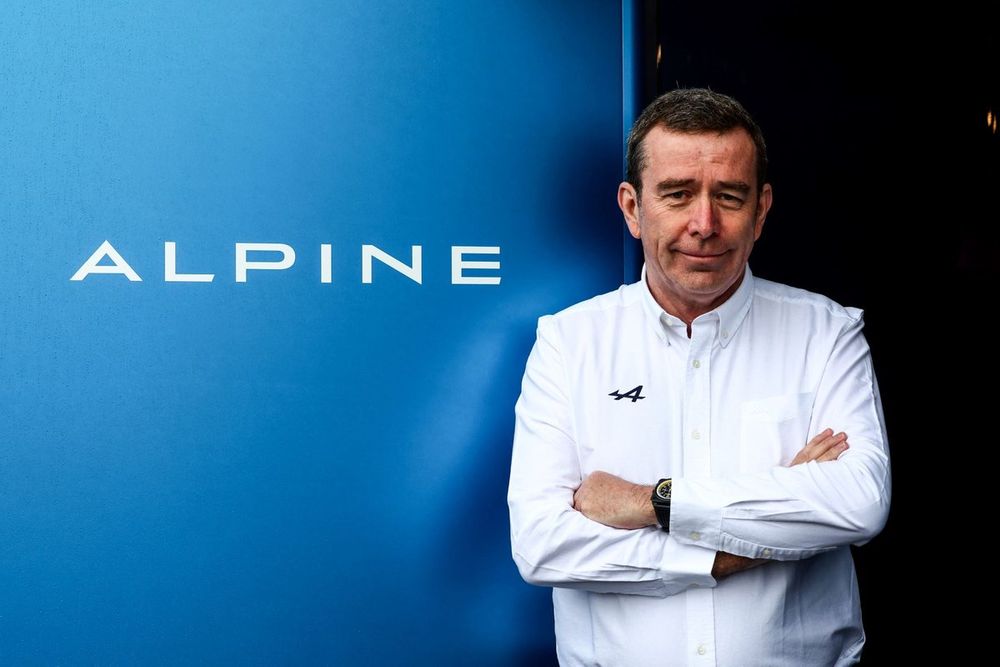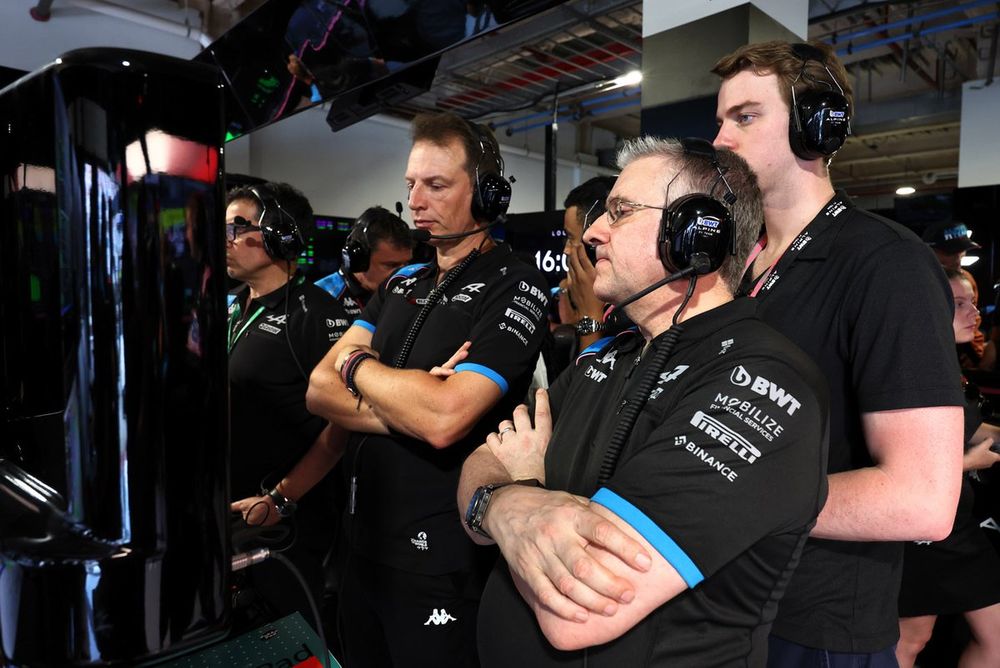
A double DNF in the British Grand Prix helped the resurgent McLaren leapfrog it for fifth in the constructors’ championship, as it faces an increasingly tough battle in the ultra-close midfield.
And things have not been easy off track either, with the Enstone-based squad having been on the receiving end of criticisms from CEO Laurent Rossi at the Miami Grand Prix over what he felt had been “unacceptable” and “amateurish” performances.
So the decision to move Alpine’s F1 engine chief Bruno Famin into a newly created role as VP of Alpine Motorsports – in charge of all its competition activities – has inevitably raised some eyebrows.
But rather than it be some knee-jerk reaction to its F1 performance, or a bit of a political manoeuvring, instead the reasoning behind Famin’s move is quite simple.
It is about Rossi realising he cannot give Alpine’s motorsport programmes the full attention needed if the French manufacturer is going to achieve its targets in the automotive sector.
So in shifting Famin to a more senior role, with F1 team principal Otmar Szafnauer reporting to him now rather than Rossi, it means that Alpine has someone able to give both the grand prix team and its other motorsport ventures the level of focus required.
Speaking to Autosport about the new structure, Famin said: “The change has nothing to do with the current situation with the F1 team. It has to do with the brand itself, and the ambitious goals we have in terms of developing the brand, in terms of new products, road cars, and in terms of new territories.
“We have made some big announcements with new investors, for example, and the brand and the company are developing very well and very fast.
“I think Laurent Rossi realised that he needed to be more dedicated to that path, even if he loves motorsport, and that is his priority.”

From Famin’s perspective, the change can only be a positive for Alpine’s F1 effort – as it simplifies the reporting structure and ensures that the company has someone totally focused on improving results.
“The main difference will be that I will be 100% dedicated to the role, and of course it will be much better for the projects,” explained Famin.
Asked if he felt Alpine had suffered from not having someone digging deep into all the details now necessary to be successful, Famin said: “Of course every single detail is very important, but I think the new organisation will help us to comply with the objectives we have in all the motorsport programmes where we are committed.
“There is F1, of course, but in Le Mans and endurance, we do not develop an endurance programme to fight in the midfield. Like in F1, our goal is to fight for a win and to fight for the titles as soon as possible.
“It won't be tomorrow in F1, of course, because we know that it is a big step. It is about the full picture, and the idea is we need to have somebody 100% dedicated to all those projects, including the young drivers, endurance racing, F1. It is to work more efficiently and to have more chance to reach our goals.”
Through his role as executive director of Alpine’s Viry-Chatillon engine programme - which he will continue to do - Famin already has regular contact with Alpine F1 team boss Szafnauer – and he has full faith in the job being done.
And while Rossi’s headline-grabbing criticisms suggested unhappiness at some aspects of the way the team was run, Famin thinks that things are better now.
“All the team is doing its best to do the best possible race at every single event,” he said.
“Laurent's reaction was what it was. I think everybody understood the message and everybody is pushing his best for making, of course, not only no mistake, but the best possible work to give to the driver the best possible car.”
One thing that is not going to change, though, is the infamous 100-race plan that Rossi declared in 2021 of Alpine being regular podium challengers by next year.

“There is no reason to change the roadmap,” said Famin about that. “But the idea is to have more chance to reach the goal.
“Of course, we have more and more projects in motorsport, we have huge ambition for the brand, for developing the brand. That's why we had this change in the organisation to have more chance to reach our goal.”
It is clear too that he has no intention to start over-reaching his involvement in the F1 team and stepping into areas that are Szafnauer’s domain.
“Everybody will have his own role in the organisation,” he said. “Otmar has his role, I will have mine, supervising everything. That is it. I am not a fan of micromanagement.”
What Famin’s new role will also help with is being able to execute infrastructure and development improvements in the manner needed for Alpine to hit that 100-race target.
“We have a development project in house for both Enstone and Viry,” he said. “Having somebody fully dedicated to the project will help in pushing the realisation of all that project. The idea is to go as fast as possible, to be able to make new steps, progress, and to have the team better and better.
“The difference from before is that I will be here on a daily basis, pushing for people to reach their objectives.”







